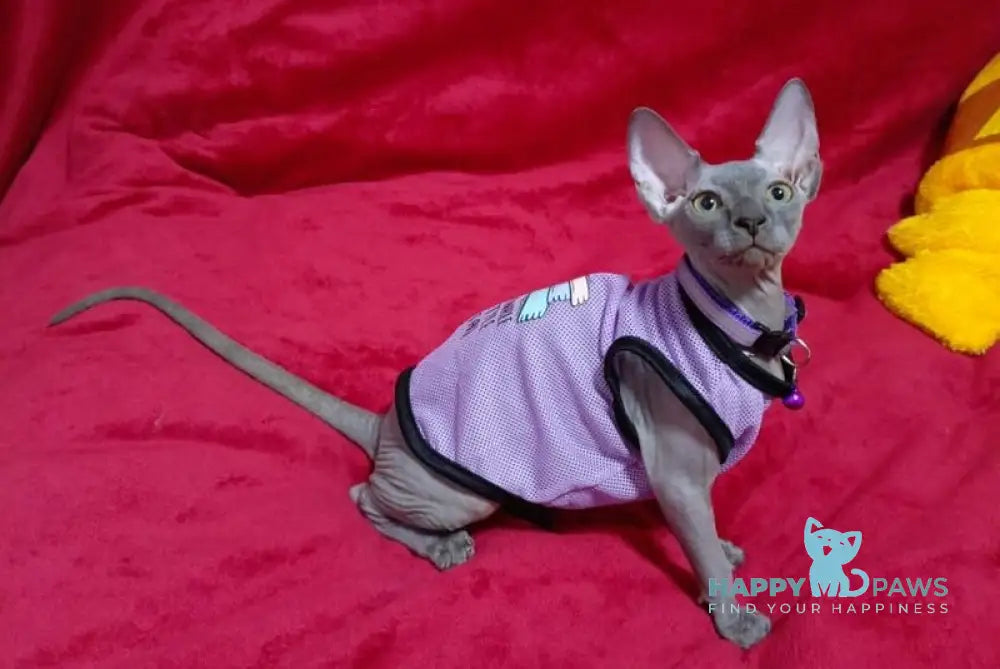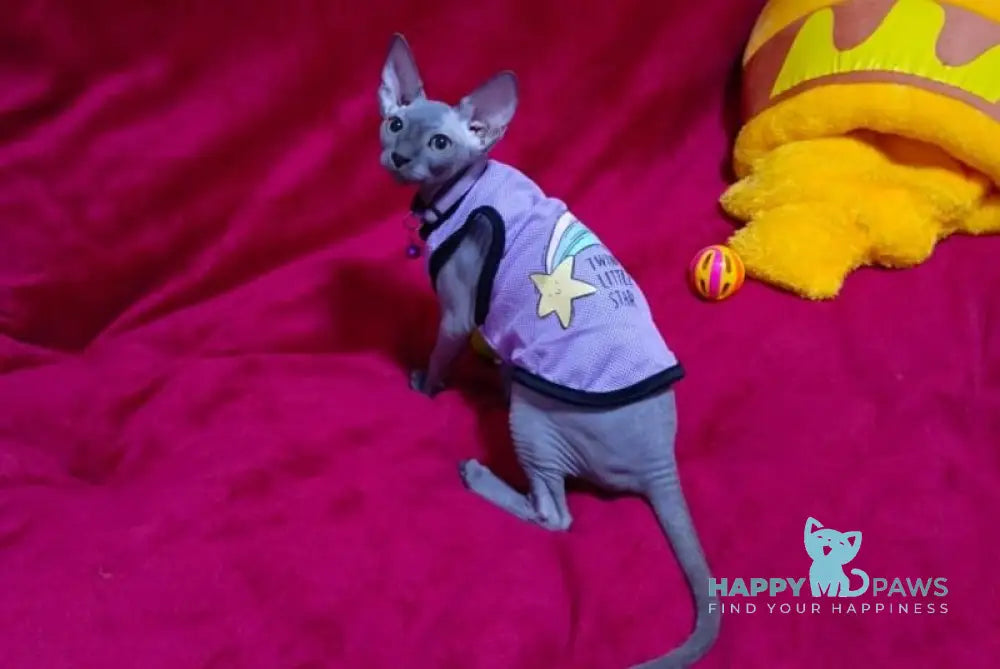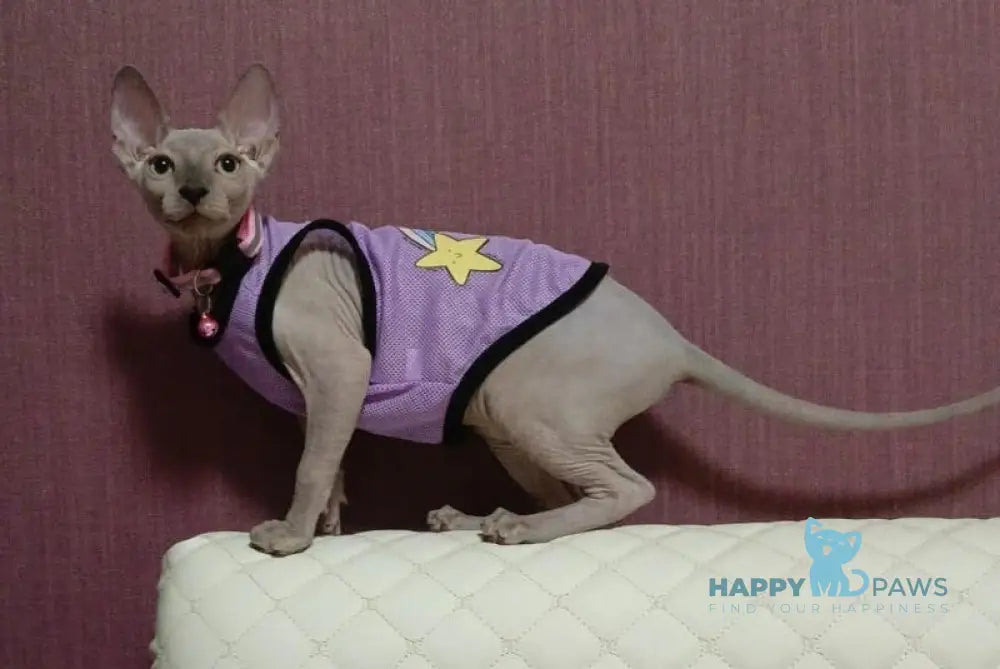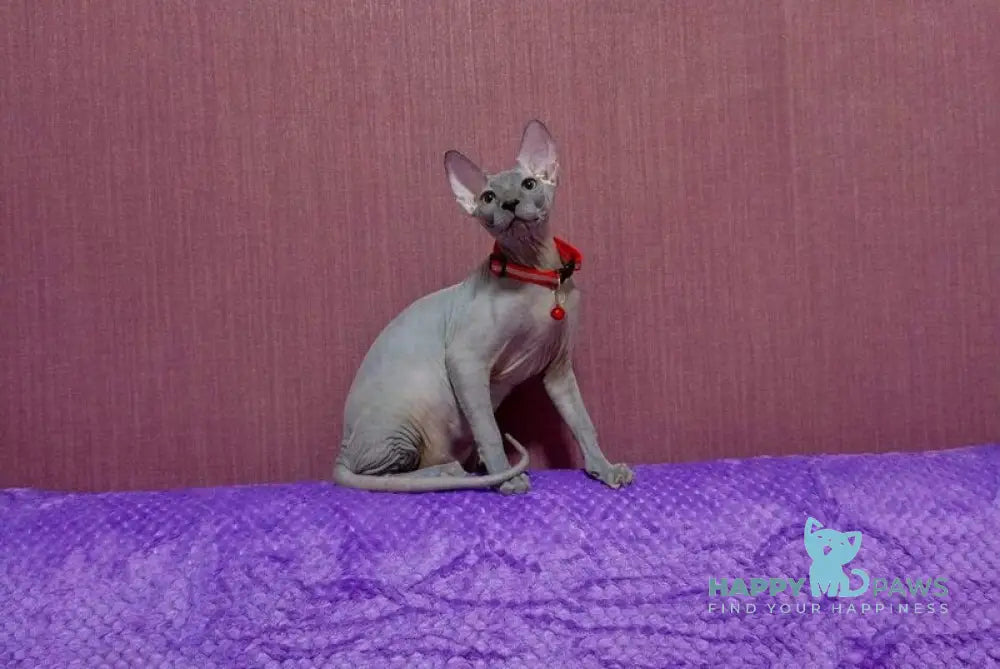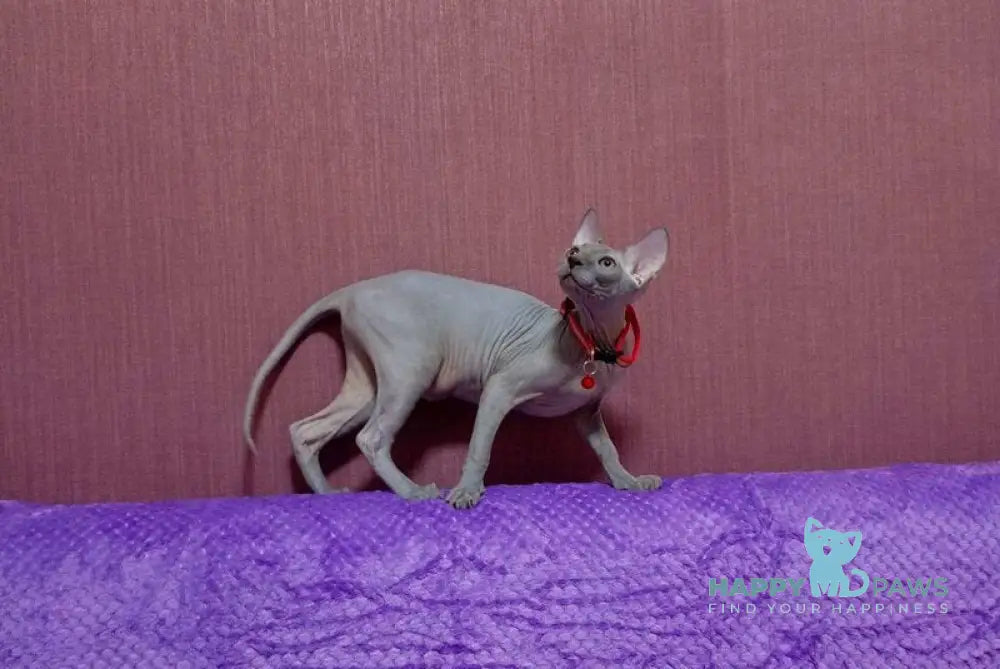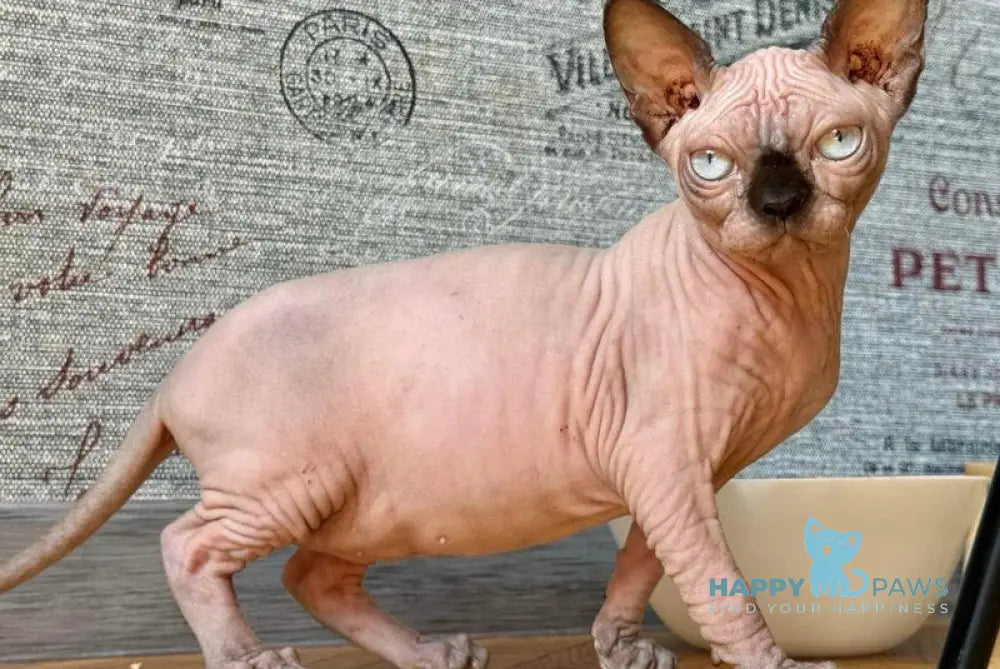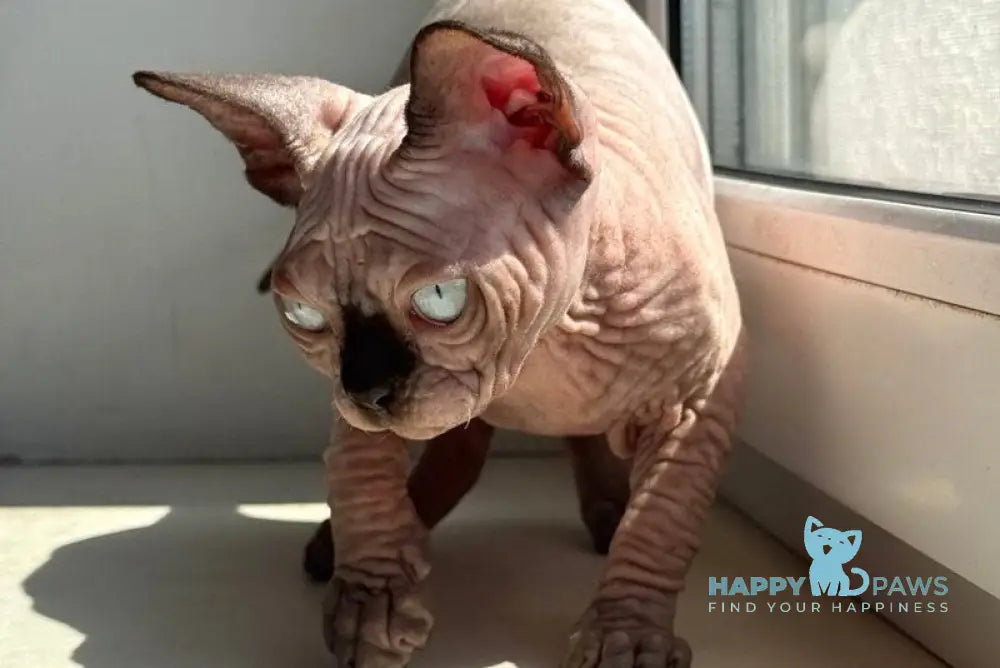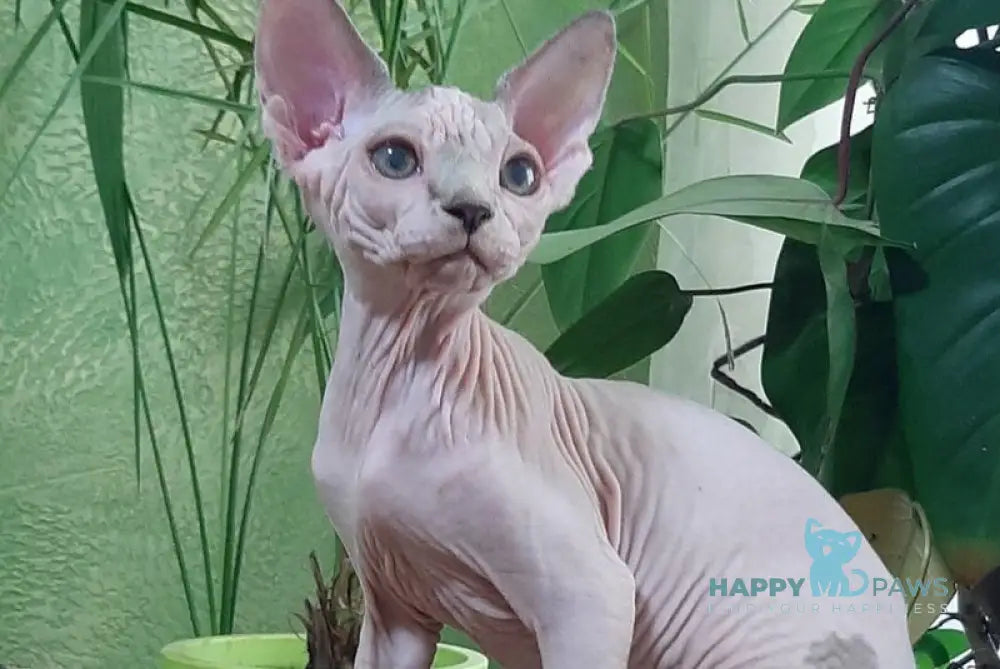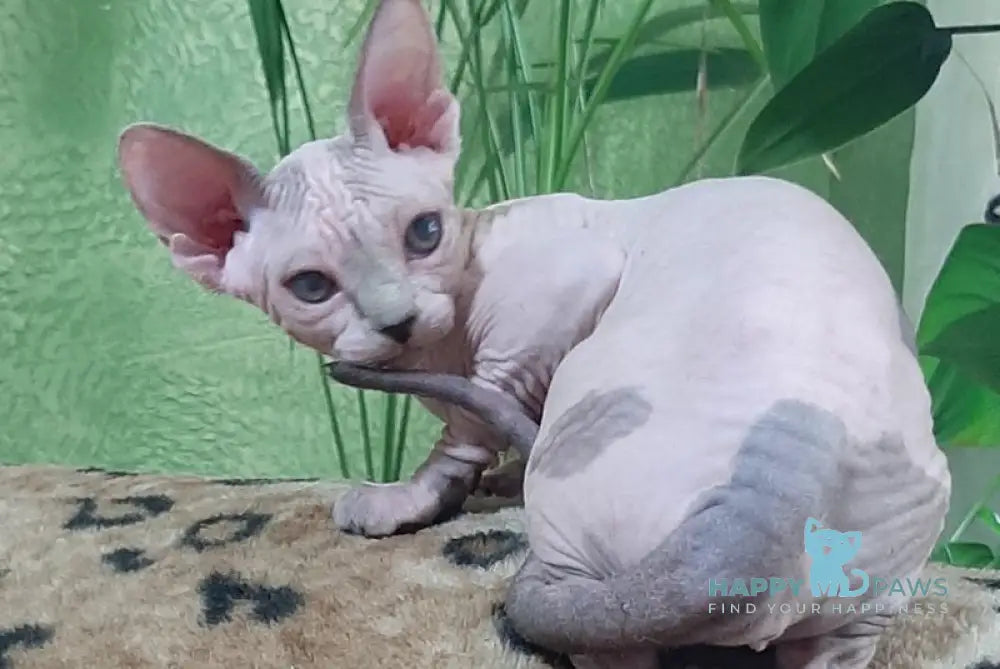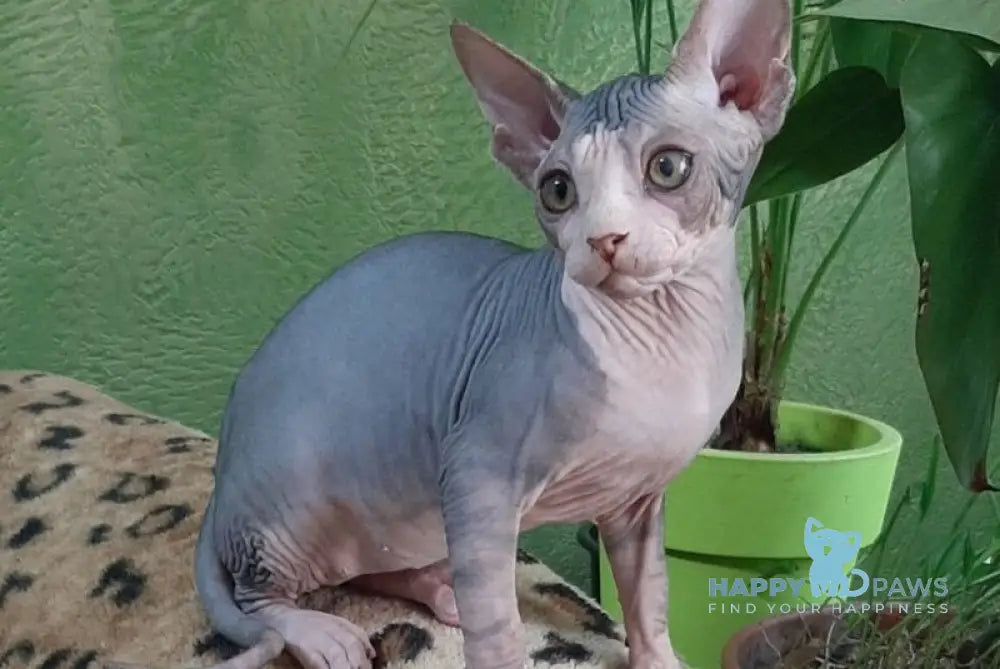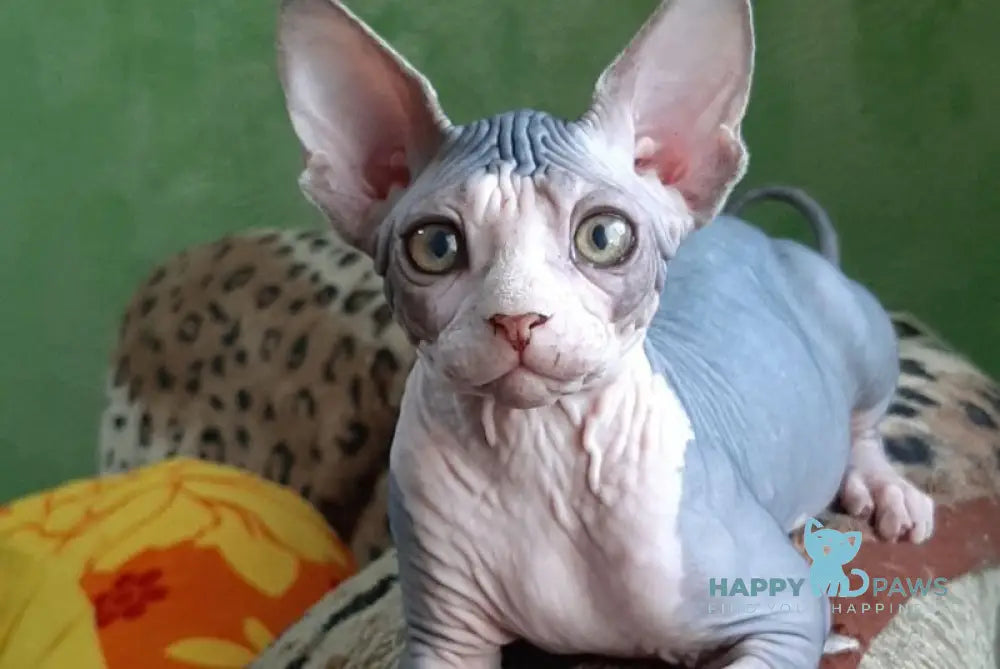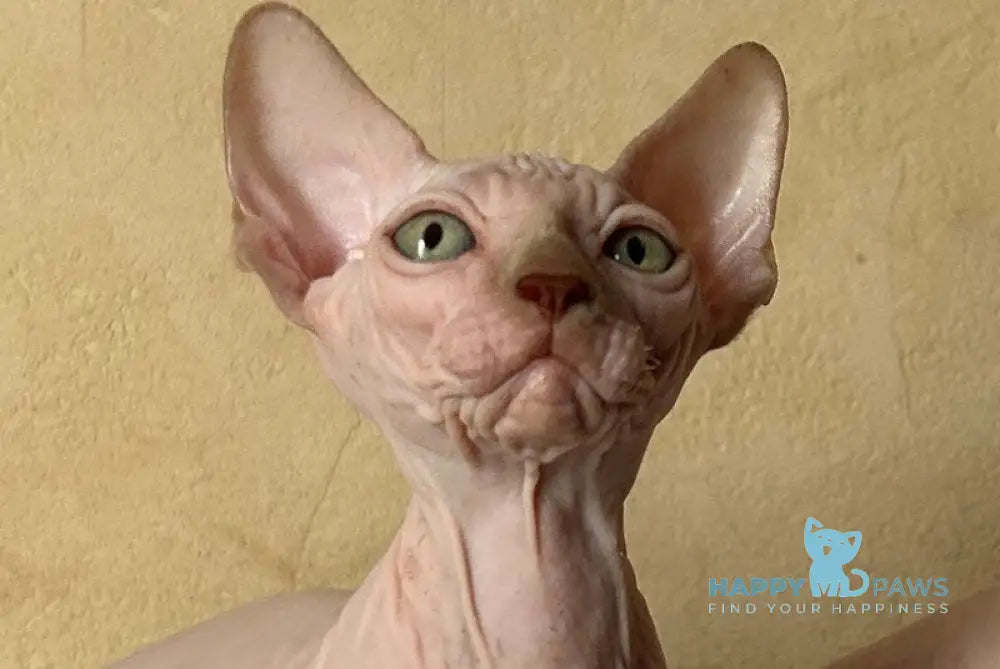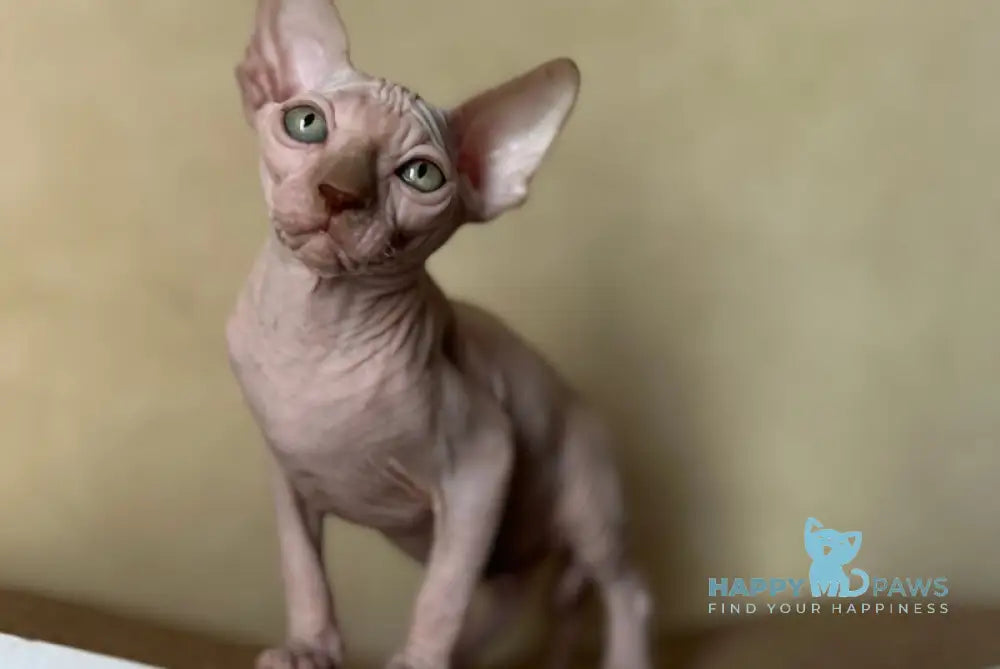Collections
-
- Abyssinian
- Balinese
- Bambino
- Bengal
- British Shorthair
- British Longhair
- Burmese
- Cornish Rex
- Chausie
- Devon Rex
- Egyptian Mau
- Elf
- Exotic
- Kurilian Bobtail
- Lykoi
- Maine Coon
- Munchkin
- Oriental Shorthair
- Persian
- Ragdoll
- Russian Blue
- Savannah
- Scottish Fold
- Scottish Straight
- Selkirk Rex
- Siamese
- Siberian
- Somali
- Sphynx
- Toyger
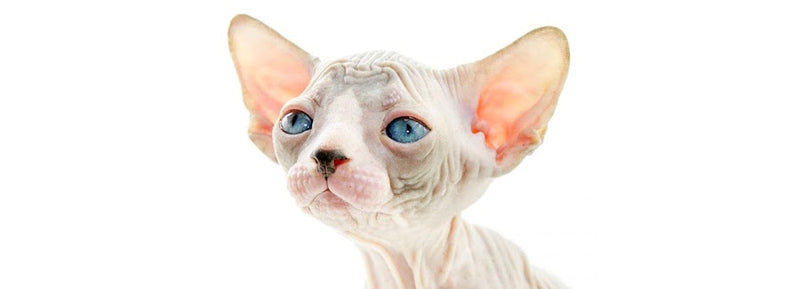
Sphynx
22 products
Showing 1 - 22 of 22 products
Sphynx Cats: The Affectionate Hairless Wonders
In summary, the hairless Sphynx cat breed, which has an Egyptian-inspired appearance, is renowned for its outspoken personality and warmth-seeking tendencies.
With its hairless, wrinkled skin and unusual aura that evokes ancient Egypt, the Sphynx cat attracts attention. Despite not being a direct descendent of Nile cats, the enigmatic "Egyptian cats" are associated with their remarkable appearance. This guide examines the history, distinctive characteristics, and maintenance needs of this unusual breed, whether you're thinking about adopting one or are simply interested in it.
Where Does Sphynx Come From?
When a black and white cat in Ontario, Canada, gave birth to a hairless kitten in 1966, the Sphynx was born. The owner of that cat, Prune, bred him with other cats to create more hairless kittens when he was old enough.
A recessive gene causes hairlessness. Thus, in the ensuing litter, some of the kittens had hair and others did not. People started calling them such because they looked like the carvings of the Sphinx from ancient Egypt.
Ten years later, a hairless cat started to show up in Minnesota and Toronto. These kittens were mixed with the Devon Rex, another species that is primarily hairless. And the contemporary Sphynx breed was founded on the progeny of these matings.
To improve the Sphynx's general genetic health, breeders in North America and Europe have crossed it with coated cats and then back to hairless ones over the years.
|
Weight |
Size |
Lifespan |
Breed Group |
|
6-12 lb |
Medium |
8-14 yr |
North American |
Reason Why the Sphynx Breed is Hairless
It results from a mutation in the gene that gives hairs their keratin protein when they grow out of the follicle. Although the hair is created, its structure is weaker, making it more prone to damage and dislodgement. Sphynx cats don't shed like other cats do because they don't have hair, so you won't have to worry about fur getting on your clothing or furniture.
Despite what many people think, sphynx are not entirely allergy-friendly cats. Despite their hairless appearance, these cats have a very thin, suede-like coat. However, for cat lovers looking for a breed that has fewer allergies on its fur than others, doctors may still suggest a sphynx cat.
Their Affectionate Temperament
Because they draw attention everywhere they go, sphynxes like being the focus of attention. These gregarious cats desire constant human companionship. "Independent" probably doesn't apply to the typical Sphynx.
Almost everyone, including children and other pets, gets along with these cats. They enjoy sleeping on a bed under the covers and curling up on a lap. Sphynx will be pleased to welcome guests as well. They are perfect therapy cats because of their affectionate cats dispositions.
The Sphynx, however, is not the best choice if you want a peaceful pet. These cats love to chat and are purring machines. They are also lively, attentive, and inquisitive. They enjoy playing and providing entertainment for everyone in the house. Using their lengthy toes to open cabinets and doors is one of their favorite tricks. They probably are, too, provided you're game for a game of fetch or chase!
Behavior and Bonding with Sphynx
By watching other bald cats and having some hands-on experience, kittens learn what it means to behave like a cat. Additionally, cats can only learn to coexist peacefully with humans via experience.
A cat that never engages with people may grow up unsocialized and prefer the outdoors, typically living in a colony, a close-knit group of other outdoor cats. She will be afraid of people and anything related to them, including lawnmowers, footsteps, voices, and even electric cat food can openers.
Early socialization is essential to a Sphynx cat's ability to get along with another warm-blooded pet. During their kittenhood, exposing them to a variety of animals and circumstances aids in the development of the skills they will need to deal with a range of social situations as adults.
Sphynx Grooming and Hygiene Essentials
Although you might think that a cat with little to no fur wouldn't need much Sphynx grooming, the sphynx cat really requires more upkeep than many other kinds of cats with typical fur. The skin of sphynx cats needs to be cleaned frequently to maintain a good oil balance, avoid skin issues, and avoid oil stains on furniture because they lack hair to absorb their body oils.
To get rid of oil buildup, you should give your sphynx cat a weekly or bimonthly bath. To prevent excessive dryness or skin irritation, use a mild shampoo made especially for cats. Unlike many other intelligent cat breeds, most sphynx cats are quite tolerant of being submerged in water because most breeders adapt their kittens to frequent bathing.
Feeding and Nutrition Tips
Compared to cats with coats, sphynx require more calories due to their extremely high metabolisms. Therefore, eating a healthy diet is crucial. Feed a food suitable for their life stage (kitten, adult, senior) to satisfy their nutritional demands. Experts advise:
-
High Metabolic Rate = Increased Caloric Needs: Sphynx cats require 20% more calories per day than other cat breeds due to their rapid metabolisms, which compensate for heat loss from their lack of fur.
-
Make diets high in fat and protein a priority: High-quality animal proteins and fats should be a major part of their diet to maintain muscle mass, skin integrity, and energy levels.
-
Maintain Hydration with Water and Wet Food: Wet food can be particularly beneficial for hydration, and regular availability of fresh water is essential due to their rapid metabolism and busy lifestyle.
Due to their voracious appetites, Sphynx could attempt to persuade you that they require more treats or kibble. Measure out their meals and keep rewards to no more than 10% of their daily calories to prevent overfeeding, which can result in obesity.
Sphynx Lifestyle Fit: to Buy or not to Buy One?
As a highly specialized genotype, Sphynx cats require a higher level of commitment than other breeds. They require rigorous thermoregulation support, such as warm surroundings and access to heated bedding, because they lack a functioning coat.
Epidermal lipid buildup needs regular bathing routines for hygiene maintenance. They are less suited for owners looking for a low-maintenance companion because of their hyper-social disposition, which demands constant human connection and environmental enrichment. In order to support the increased metabolism, prospective buyers should evaluate their ability to give consistent care and controlled dietary management.
Final Thoughts
For homes that value high levels of engagement, consistent care regimens, and a socially active feline presence, a Sphynx can make an excellent companion. To ensure a seamless transition into family life, every Sphynx kitten at happypawsus.com is thoroughly vaccinated, examined, and socialized with kids.
Adopting a Sphynx from our program guarantees both health reliability and behavioral preparation, giving you the confidence to bring a rare and loving companion into your house, if your lifestyle permits the time and money needed for this unusual breed.
FAQ
1. Do Sphynx cats need special care because they have no fur?
Yes, regular bathing is necessary to remove oil buildup from their skin due to their lack of fur. Additionally, because they are less able to control their body temperature than coated cats, they require warm surroundings.
2. Are Sphynx cats friendly and social?
Sphynx cats love interacting with people and are quite gregarious. They often seek warmth, follow their owners, and form close bonds with family members..
3. Can Sphynx cats live in apartments?
Yes, if their needs for play, warmth, and company are satisfied, Sphynx cats do well in apartments. Having climbing frames, toys, and heated bedding keeps them occupied and comfortable.
